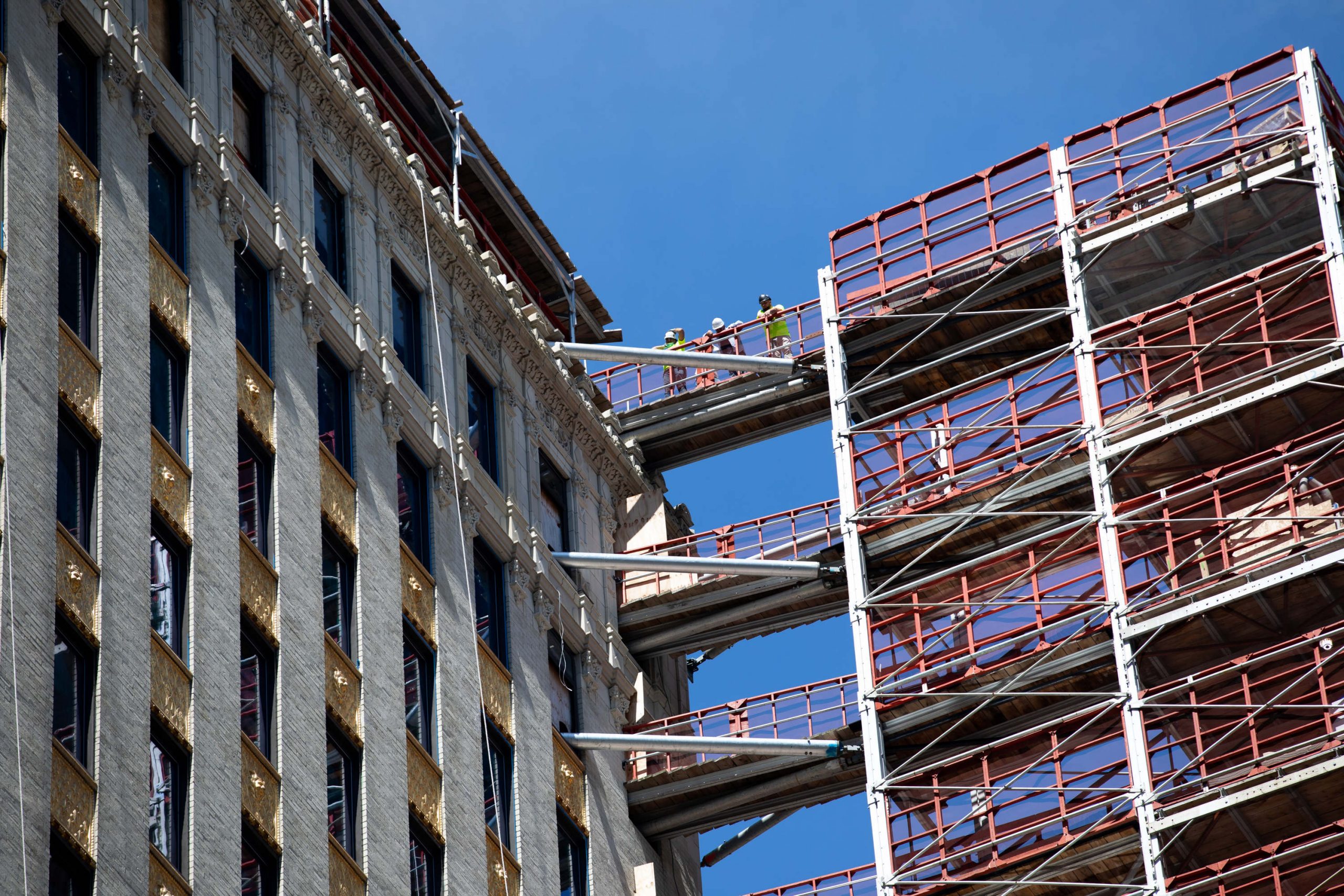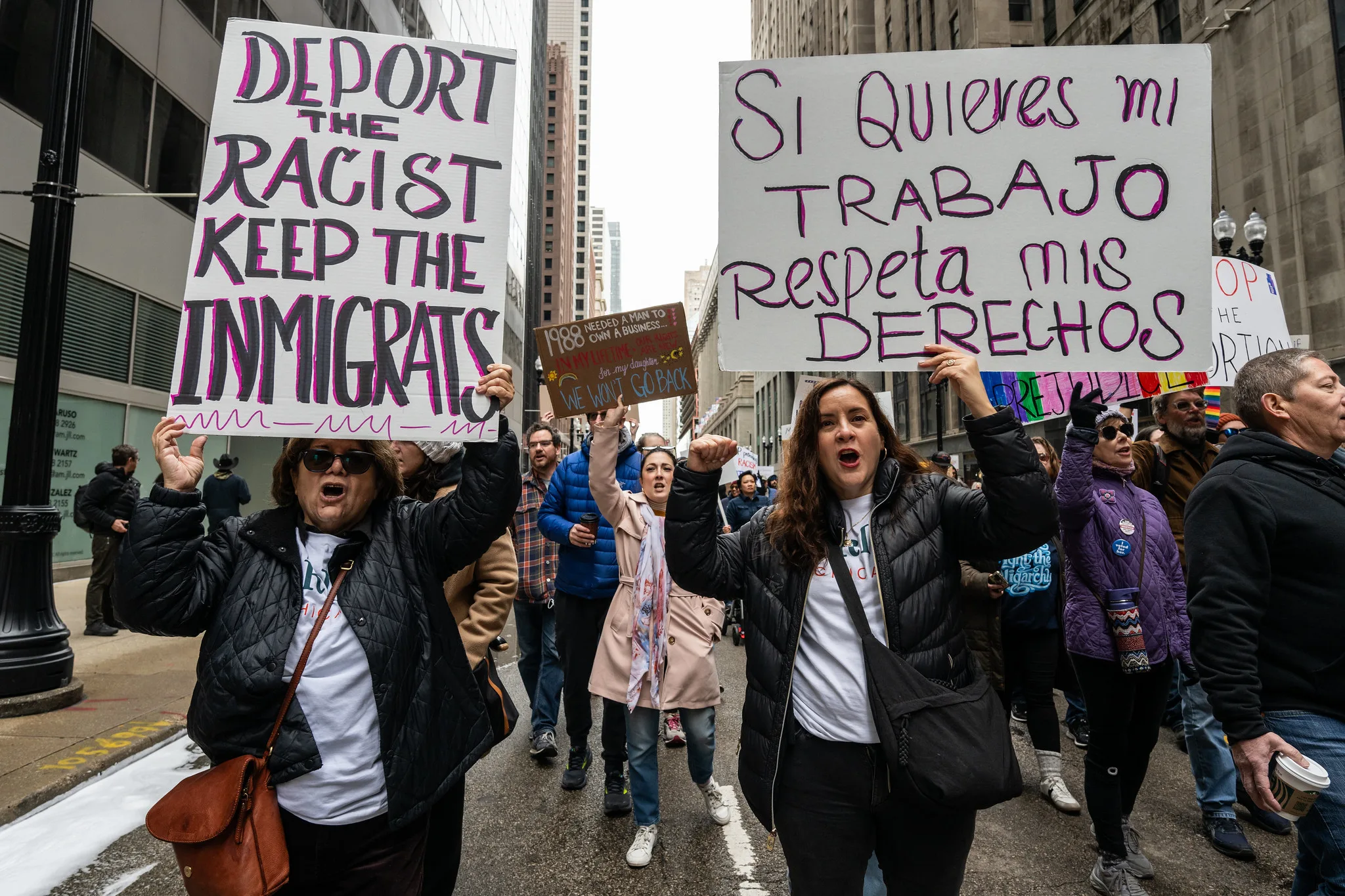While living in Haiti, Samuel Thermitus worked as a professional graphic and web designer for more than eight years. He developed a deep passion for technology and later worked in the Biden campaign from Haiti, producing video content for the U.S.-based Haitian immigrant group named Haitians for Biden.
In January, as the security situation worsened in Haiti, he moved to the Dominican Republic, forging a more promising future. That same month, President Joe Biden designated Haiti for the Parole Process for Cubans, Haitians, Nicaraguans, and Venezuelans (CHNV).
Also Read: Humanitarian Parole Program: Who Qualifies?
This Parole Process, also known as CHNV, the Humanitarian Parole Program, or simply “Biden” in Haiti, allows Haitians to reside and work in the U.S. for two years. With Humanitarian Parole, foreign nationals can temporarily enter the U.S. territory “due to an emergency and urgent humanitarian reason or significant public benefit,” according to the Department of Homeland Security.
After the program was launched, thousands of Haitians rushed to the immigration and emigration offices in Haiti to apply for passports. Thermitus had a sponsor in New York (a requirement for eligibility) who filed a letter of financial support for his application and eight months later, Thermitus got his “Biden” approved through a U.S. Citizenship and Immigration Services (USCIS) confirmation email and traveled to New York on Aug. 30.
Since the program began, many Haitians have traveled with their children, and have enrolled them in U.S. schools. But like Thermitus, many are unsure about what might happen after their two-year permit expires while the political turmoil in Haiti continues and as the current U.S. administration continues to deport Haitians.
On July 7, 2021, Haitian President Jovenel Moise was assassinated, and since then, Haiti has spiraled into a cycle of violence where heavily armed gangs control 60% of the capital’s territory, according to the United Nations.
The violence and massacres perpetrated by the gangs have forced thousands of people to leave their homes, causing nearly 200,000 internally displaced people in the country. In the absence of elected officials and a severe economic crisis, emigration is considered by many to be the best way to guarantee a secure future and escape the numerous kidnappings taking place in the country.
When the CHNV Parole Process first opened, it offered thousands of Haitians the opportunity to escape Haiti’s violence and find employment in the United States.
The Biden administration aimed to allow 360,000 nationals from Cuba, Haiti, Nicaragua and Venezuela to enter into the U.S. with CHNV each year. But so far, the Biden administration has not provided any details about the future of the CHNV Parole Process.
Many Haitian immigrants expect an extension like the Temporary Protected Status (TPS), which 116,505 Haitians received as the Department of Homeland Security (DHS) has redesignated and extended Haiti for TPS status multiple times since 2010 after a deadly earthquake in Haiti killed 300,000 and caused more than 1.5 million displaced people.
Unlike the CHNV Parole Process, those with TPS can submit or renew applications provided the country is redesignated or TPS is extended. In 2017, the Trump administration ended the program for Haiti, El Salvador, Honduras, and Sudan. But in 2019, the DHS extended the TPS for Haiti, complying with a court injunction issued by the U.S. Circuit Court for the Northern District of California.
Except for Cuba which is not designated for TPS, the three other countries eligible for the Parole Process have over 362,000 nationals under Temporary Protected Status in the United States.
When Thermitus was working for Biden’s campaign, Biden, the presidential candidate, promised Haitians that, as president, he would make sure “the Haitian community has an even shot to get back on its feet. However, since Biden took office, his administration has deported (expelled) more than 20,000 Haitian asylum seekers. According to Quixote Center, a Maryland-based nonprofit organization, during his first year as president, Biden deported nearly as many Haitians as the last three presidents combined.
Questions left unanswered
“I wonder what will happen next,” says Jemimah, who asked to be identified by her nickname only.
Like Thermitus, Jemimah, 35, went to live in the Dominican Republic after being the victim of an undisclosed aggression in Haiti. She got her CHNV parole application approved after two months and came to New York on March 25. The day after, she applied for a work permit, which she obtained five months later.
Also Read: New York’s Only Organization Helping Young Haitian Students Struggles to Meet Demand
“I have so many questions about my options after the two years. It’s my stress for now,” she said. With 14 months left in her parole, Jemimah wonders if she might face deportation in 2025.
Stephanie Delia, a board member of the Haitian American Lawyers Association, says about Jemimah’s possibility of deportation is that “It depends.”
“The first thing that would have to happen is that they would have to be put into removal proceedings,” says Delia. “The Department of Homeland Security can do this by filing a Notice to Appear [NTA], which is very fast since they already have their information. Then, the immigration judge would have to order them removed if they are not eligible for any immigration relief at that time.”
According to Delia, CHNV parolees can apply for asylum if they meet the eligibility requirements and submit their application within one year of arrival. Moreover, those who have a U.S. Citizen spouse or a child over 21, or if they are under 21 and they are a child of a U.S. citizen, may be eligible through family immigration categories or employment immigration categories.
A strategy to curb the flow of asylum seekers
As of October 2023, 107,697 Haitians have been granted parole under the Parole Process. According to the U.S. Customs and Border Protection, over 99,000 have been vetted and granted travel authorization.
For the Biden administration, the Parole Process was a strategy to curb the number of migrants and asylum seekers at the U.S.-Mexico border. The Parole Process, which was opened to Cubans, Haitians, Nicaraguans and Venezuelans this year, was an extension of the Parole Process for Venezuelans launched in October 2022. A month after the program’s launch, the number of migrants from the four countries under the Parole Process encountered at the border fell by 97% compared to the previous month.
The nationality of immigrants coming in and out of New York is not tracked by the Mayor’s Office of Immigrant Affairs, according to MOIA. Furthermore, the city’s tracking of incoming immigrants through their arrival centers, tracked by NYC Health + Hospitals and the Department of Homeless Services, does not provide an accurate number for those who have arrived by humanitarian parole rather than asylum.
CHNV parolees are not allowed to travel outside of the U.S. during the two-year period. Once at the airport, U.S. immigration officers put an entry stamp on their passport.
Delia says the outcome of the CHNV Parole Process is dependent on who will be the president in 2025.
“While I do not expect the Biden administration to deport these folks, I would not be surprised if he allowed them to fall out of status and leave them in limbo, like DACA beneficiaries after President Obama left office,” she said. “If an anti-immigrant president wins the election, there is a risk that many of these folks could end up with Notices to Appear and possible removal orders.”
For Thermitus, he saw in this program an opportunity to learn and work. “I want to say I learned something, so wherever I go, I can use my skills and international experience to serve and work,” he said.
Thanks to the Haitian American United for Progress (HAUP), a nonprofit Haitian-led organization based in Brooklyn, he rapidly got health coverage, a social security number, and a work permit. After two months, Thermitus has kept looking for the best opportunities.
Jemimah was a kindergarten teacher in Port-au-Prince. She dreamed of working in New York schools but couldn’t meet the requirements. She wanted to have a job so she could help her three siblings and her mother in Haiti. Now she wants to save money while in the U.S. to establish a school upon returning to Haiti. Eight months after arriving in New York, she works as a part-time babysitter. In the meantime, she is still looking for a better job to send money to her family.
Correction Dec. 11, 2023: An earlier version of this story mistakenly stated that those with TPS status can renew applications every 18 months, when in fact the extension and the duration of the extension are at the discretion of the Department of Homeland Security and are not automatic. We have also clarified that 116,505 Haitians have received TPS status, but not all of them were after the 2010 earthquake.














